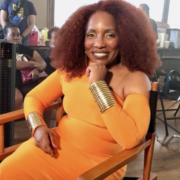‘Trouble in Mind’ Director Charles Randolph-Wright Says Play About Race in the Theater World Is a ‘Love Letter and a Poison Pill’
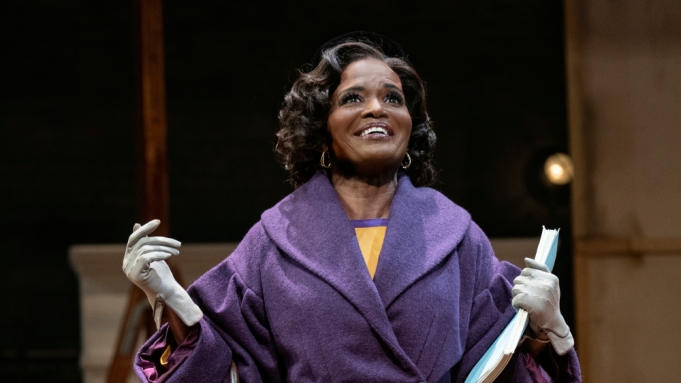
Joan Marcus
August Wilson is well remembered for remarking that Black theater is alive, vibrant, vital and unfunded — that commerce and a common racism had long held American theater hostage to a mediocrity of tastes. On Broadway last Thursday, where Alice Childress’ 1955 play “Trouble in Mind” opened 66 years late, American theater took an overdue, yet well-timed step toward revising what plays ought to be considered classics.
“Trouble in Mind,” starring LaChanze and directed by Charles Randolph-Wright, tells of Wiletta Mayer, a Black actress rehearsing a new anti-lynching play with an interracial company, written by a white author and led by a white director (Michael Zegen). Mayer’s discomfort with the play and its rehearsal surfaces a damning portrait of what it means to be Black in American theater.
A hit off-Broadway in 1955, “Trouble in Mind” was slated to become the first play by a Black female author on Broadway, but when Childress refused to tone down its anti-racist rhetoric, producers pulled the plug. Thursday evening, “Trouble in Mind” took its Broadway bow, untouched as Childress intended, for the first time.
“I want Alice to be in the canon, and now I know she will be,” director Randolph-Wright told Variety on opening night. “At first, I didn’t want the play to come now,” he said, noting that he’d been advocating for Roundabout Theatre Company, who mounts the play, to produce her work for decades. “I didn’t want it to be caught up in the moment, to be seen as knee-jerk. But I realized that people are actually listening to it differently. … This play is a love letter and a poison pill.”
Nearly every turn of phrase in “Trouble in Mind,” a breathtaking comedy-drama, falls as prophetic and damning for the small distance we’ve come since it was written. Willetta remarks that show business for actors of color is just a business; “colored folk ain’t in theater.” She tells a young actor to say he was in the last revival of “Porgy and Bess.” No one will know the difference. The play’s director, Al Manners, tells the actors not to think of themselves as Black, but people. And, in the end, as Wiletta rebels against the stereotypical characters he creates, Manners offers that the play is a lie, but the best one they’d get for years.
“If you only knew how many real-life experiences I’ve pulled on to play this role,” LaChanze told Variety after the show on Thursday. “My version of Al Manners is a combination of more than a few directors I’ve worked with. Those experiences are authentic, they’re real, and they’re part of what it means to make theater and be Black in this country.”
That “Trouble in Mind” makes it to Broadway this season is no accident, and it’s not simply a well-timed opportunity for a deserved Black playwright. Childress’ Broadway debut is the legacy of organizations like Black Theatre United, which this year partnered with Roundabout Theatre Company to forge a new canon by staging lesser-known Black plays. BTU was also founded by LaChanze, as well as theater legends like Norm Lewis, Vanessa Williams, Kenny Leon, Brian Stokes Mitchell and Allyson Tucker — all of whom were in the audience at the American Airlines Theatre on Thursday.
“Broadway isn’t coming back. It’s coming forward,” Williams, who’s been a Roundabout board member for eight years, told Variety. “There are no accidents here. … This play is part of an economic, social and artistic movement.”
“I’ve spent many of the past few months in rooms with producers,” she continued, noting BTU’s successful adoption of the New Deal for Broadway, which establishes industry-wide reforms. “And they’re eager for change, not just because they want it, but because they want to be known as a part of it, too.”

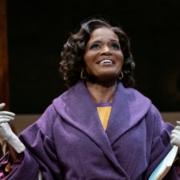



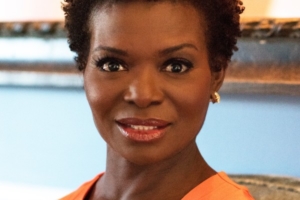 The photo was shot on stage at the American Airlines Theatre (227 West 42nd Street) where the show will begin previews on Friday, October 29 ahead of an opening set for Thursday, November 18, 2021. This is a limited engagement through Sunday, January 9, 2022.
The photo was shot on stage at the American Airlines Theatre (227 West 42nd Street) where the show will begin previews on Friday, October 29 ahead of an opening set for Thursday, November 18, 2021. This is a limited engagement through Sunday, January 9, 2022.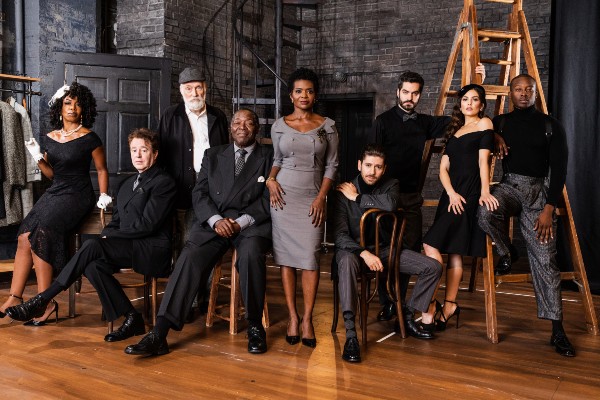
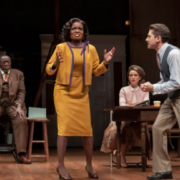
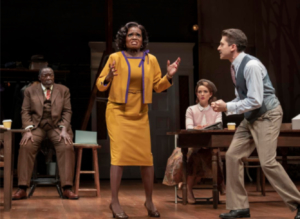







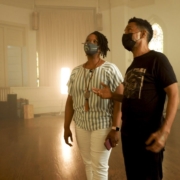 PBS North Carolina
PBS North Carolina Arena Stage
Arena Stage